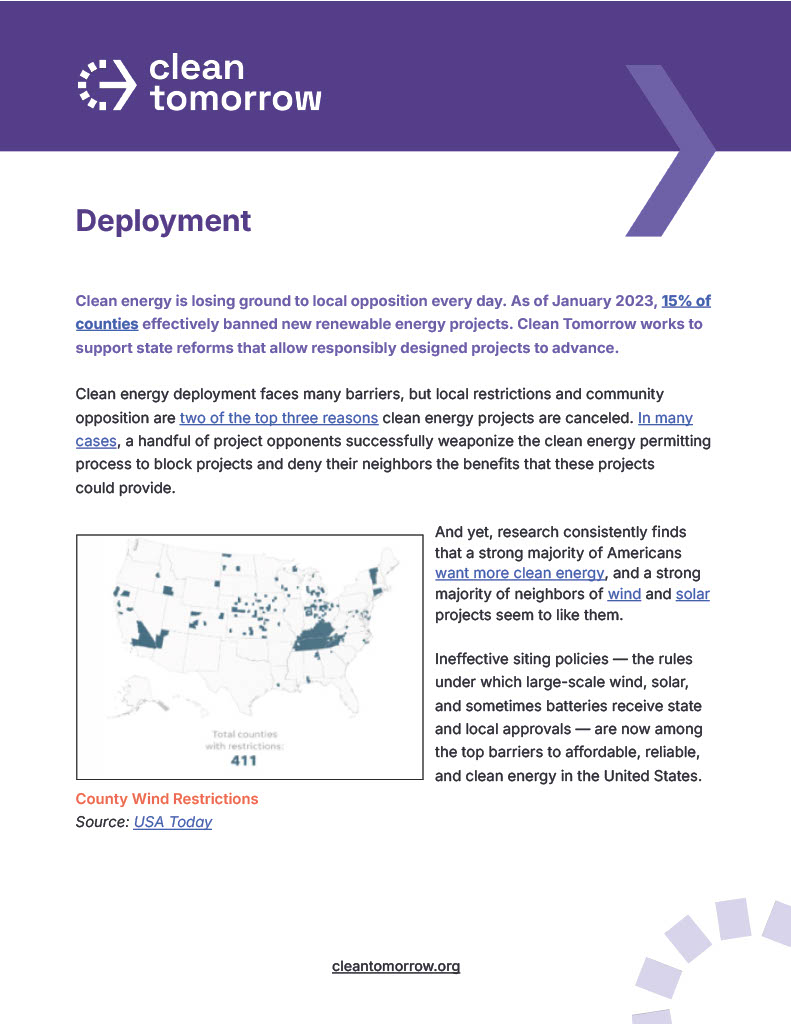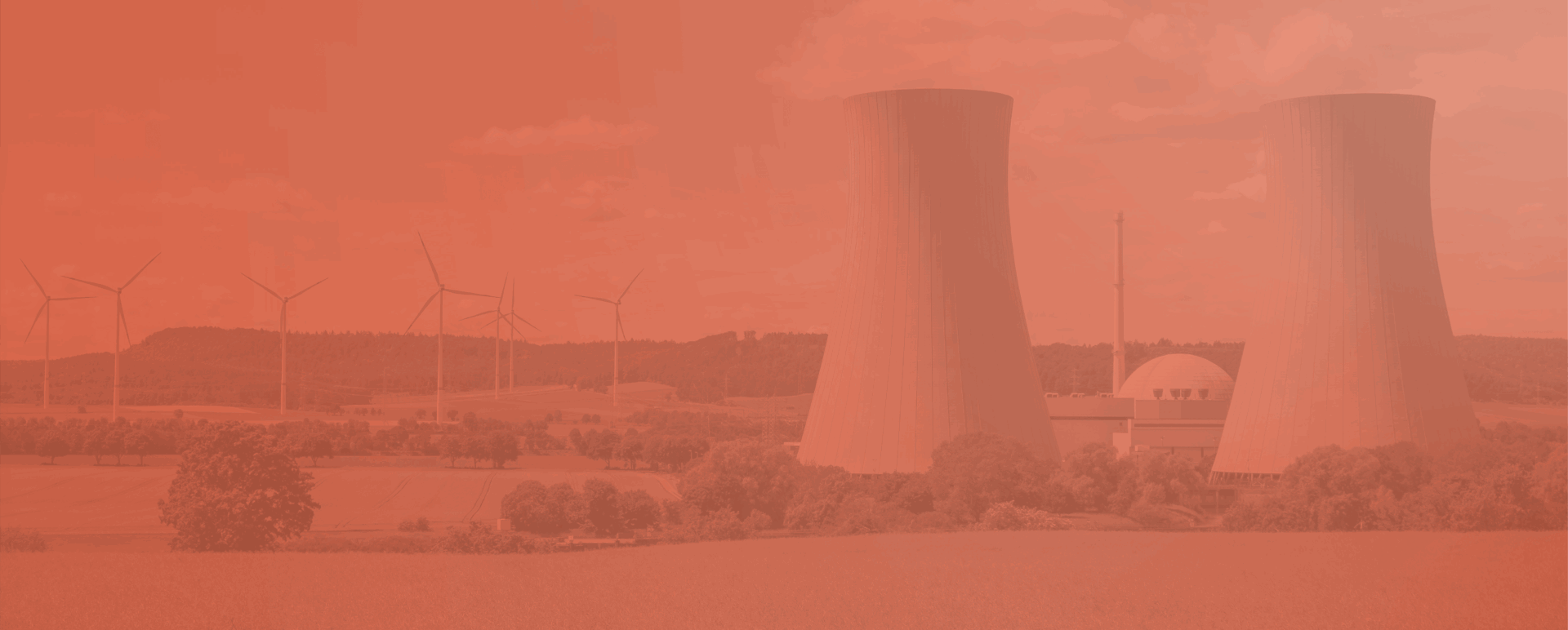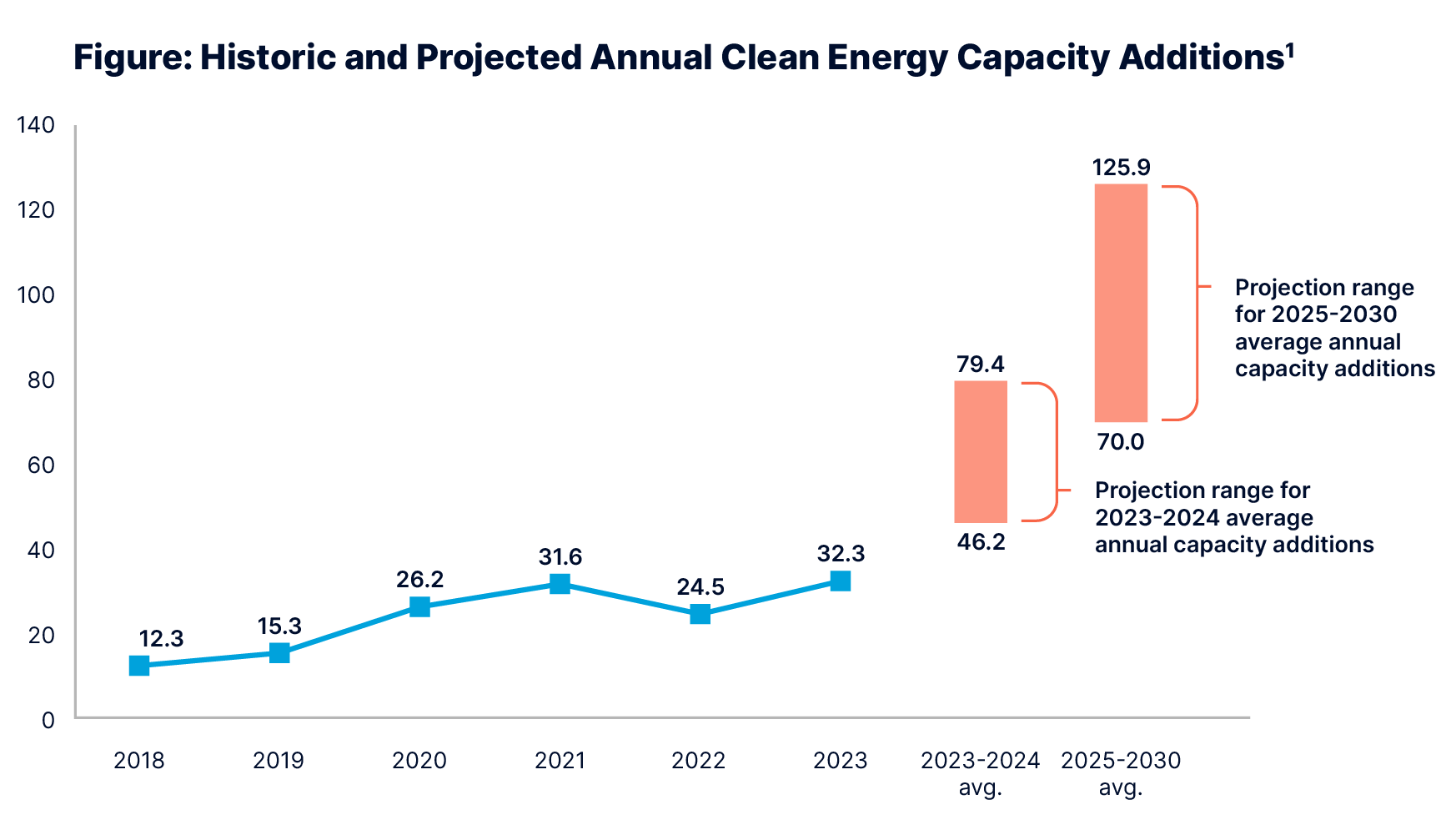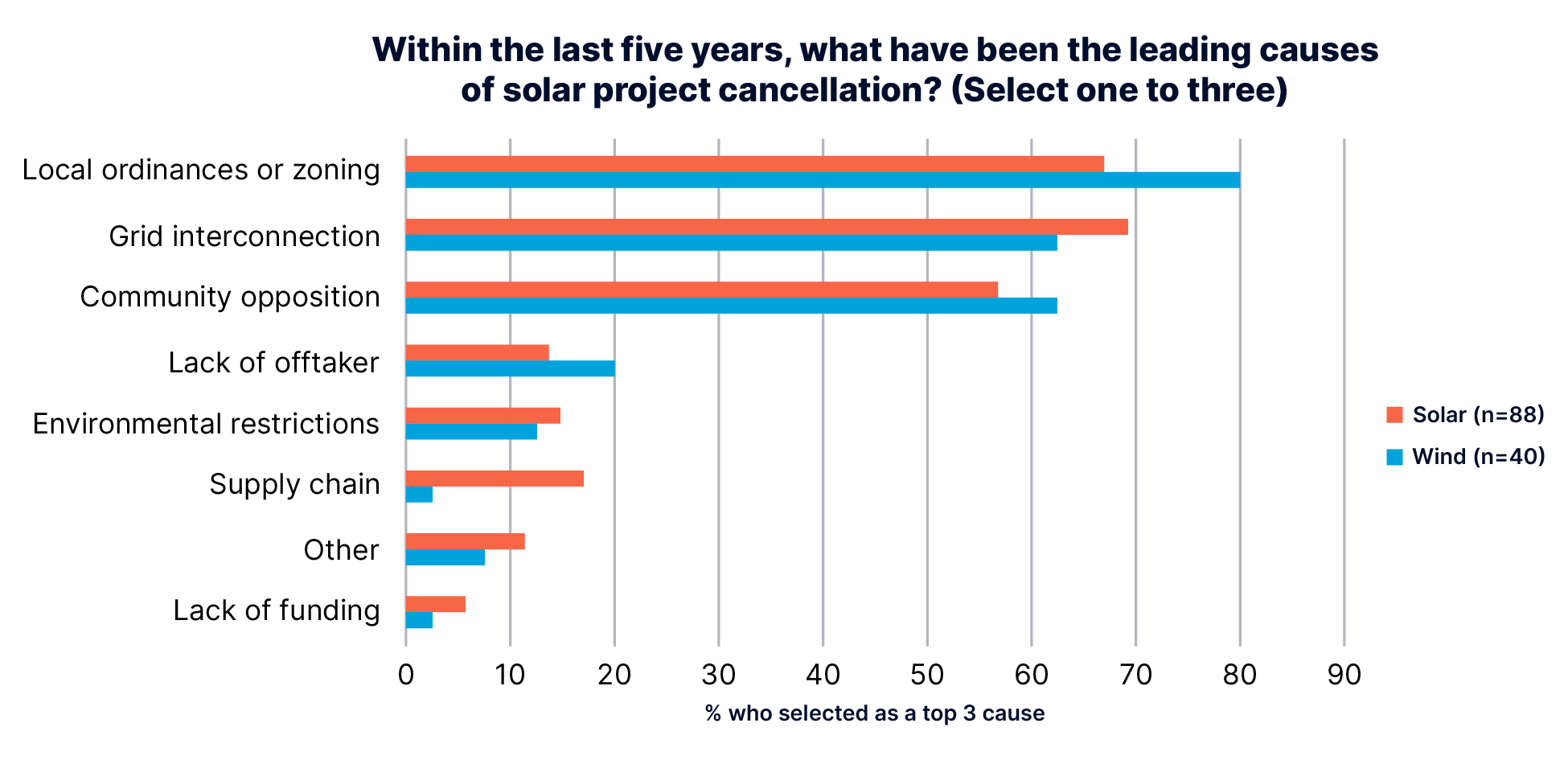
Deployment
Arrest and reverse clean energy siting prohibitions through transformative state siting policy.

The Issue
Clean energy is losing ground to local opposition and siting prohibitions every day. As of January 2023, 15% of counties have effectively banned new wind and/or solar projects. The longer this goes on, the harder it is to reverse.
Our Solution
We are developing and advocating for state policy that protects landowners’ right to build clean energy, reasonably balances state and local authority, and creates lasting local community benefits.
Reaching our nation’s climate goals requires deploying clean energy quickly and at scale. Yet wind, solar, and battery deployment is falling well short of what is needed to achieve our climate and clean energy goals. The longer it takes to accelerate clean energy deployment, the steeper the climb to reach our climate goals.

Clean energy deployment faces many barriers, but local restrictions (via local ordinances or zoning) and community opposition are two of the top three reasons solar projects are canceled. The story is similar for wind projects.
Figure: Developer Survey Results of Top Causes of Project Cancelation

Social license for clean energy projects appears to be eroding day by day after decades of misinformation. In addition to highly publicized summaries of community opposition to clean energy, recent reporting reveals the startling reality that clean energy prohibitions are outpacing development of new projects. While the growing polarization of clean energy plays some part in this trend, communities of all political persuasions are increasingly opposing clean energy.
Siting and permitting processes occur principally at the hyper-local level in the United States. But local jurisdictions are rarely equipped with the information, staff, and expertise to make informed decisions. In most of the country, developers must navigate hundreds of entirely distinct permitting requirements at the scale of counties or municipalities, adding time and expense to clean energy projects the country so urgently needs.
State policy reforms can improve the location and design of clean energy projects, increase community benefits, and help get more clean energy built where it’s needed most.
Our Work
We are helping identify, develop, and advocate for state siting policy reforms in key states across the country. Specifically, we are:
- Enhancing the advocacy toolbox through conducting foundational analysis and policy development
- Fostering policy alignment among key siting policy stakeholders
- Supporting state-specific efforts to improve siting policy through direct advocacy and technical assistance
- Elevating clean energy siting policy as a principal component of achieving community and climate goals through targeted communications